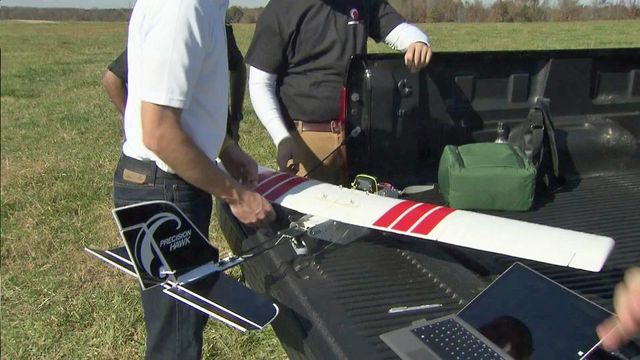Raleigh drone company looks to farmers for business
Most people associate drones with the military. They have played a major role in the wars in Afghanistan and Iraq.
Posted — UpdatedA Raleigh company is trying to change that impression. Precision Hawk believes drones can be money-makers.
A North Carolina State University farm serves as a test site for Precision Hawk near Bahama. Motors start, propellers spin and, with a gentle toss into the wind, aircraft take flight.
“The term drone has such a negative connotation, you see it on the news all the time,” said Tyler Collins, Precision Hawk’s director of business development.
Collins says the technical term for these aircraft is "unmanned aerial vehicle" or UAV. He’s trying to show how industries, especially agriculture, could use them.
“We really want to focus on the good applications for the UAV or drone, which is increasing a farmer's yield,” said Collins.
After quickly assembling the drone, a user designs a flight path on the computer and tosses the UAV into the air. The computer takes over, calibrating the aircraft for smooth, automatic flight.
On-board sensors gather all kinds of data useful to farmers -- from moisture in the soil and air to nitrogen levels in crops.
Collins described how farmers act on those analytics.
“They can pull the information out of that data, put it straight in his tractor which goes out and sprays the field for whatever application that may be,” said Collins.
A three pound UAV costs about $15,000 and sensors can cost as much as $60,000.
Collins says the technology also can be used in mining operations, as well oil and gas exploration.
Precision Hawk had to secure special permission for their UAV tests. Federal regulators are still working on rules to govern their commercial use.
Precision Hawk just signed an agreement with N.C. State to use these aircraft in real-world situations. That data will go to the FAA to help that agency craft regulation.
“We hope to see one on every farm field,” Collins said.
• Credits
Copyright 2024 by Capitol Broadcasting Company. All rights reserved. This material may not be published, broadcast, rewritten or redistributed.





